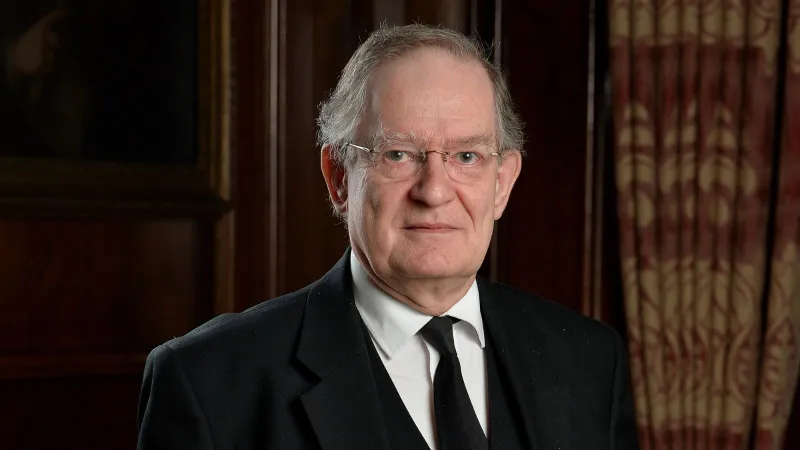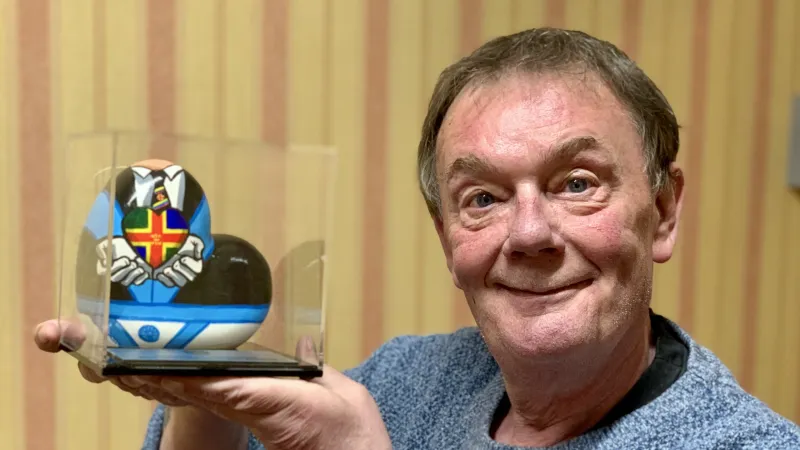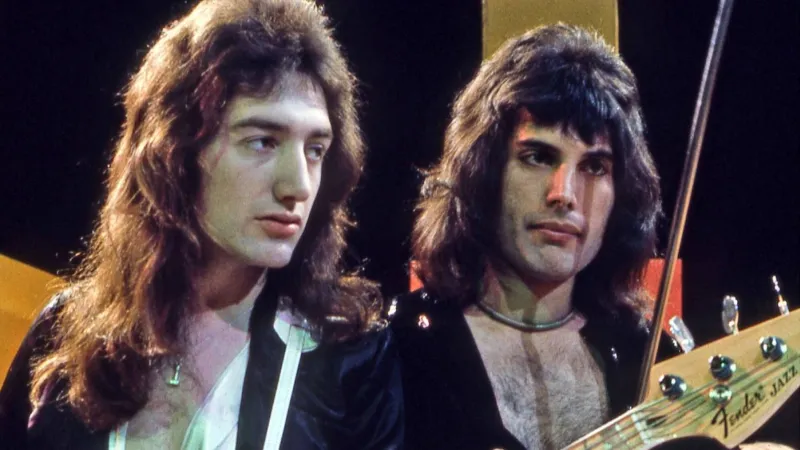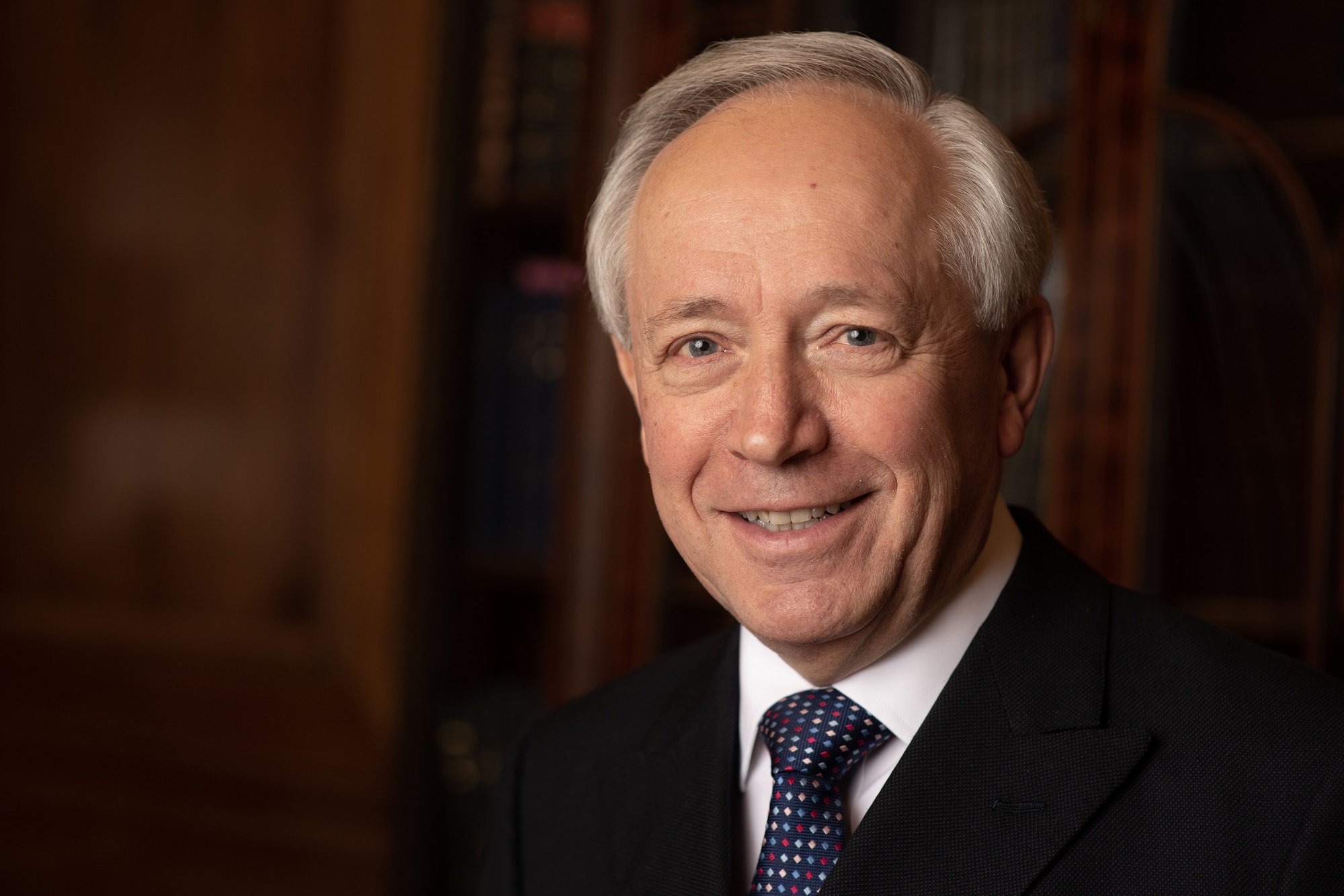
Sir Michael Snyder was leading financial services firm Kingston Smith before he was 30, so it’s a surprise to hear him admit he was a ‘slow starter’. But it’s soon apparent he’s talking about Freemasonry, where he did not have a senior role until he was 65. Now, however, after eight years as Metropolitan Grand Master, he has been appointed Deputy Grand Master. He intends to help develop a modern and accessible Freemasonry for future generations.
‘I was a slow starter because my business and public life was very busy,’ says Sir Michael, who was knighted in 2008 for services to Business and the City of London. As well as leading Kingston Smith, he advised governments on Small and Medium-sized Enterprises (“SME”) and Professional and Business Services, having been an elected member since 1986 of the City of London Corporation. He chairs a Wealth Management company and holds several non-executive roles, while spending some of his free time at a senior level within UGLE.
‘I have a fundamental belief that any position in Freemasonry should be able to be filled by somebody who is working,’ he says. ‘First comes family, second comes work and third comes hobbies, which include Freemasonry.’
As Deputy Grand Master, Sir Michael will be responsible for supporting the Grand Master and Pro Grand Master in leading UGLE. He will continue to sit on the Board of General Purposes, but now as an observer and will also chair a working party looking at how to improve Freemasons’ Hall. Having been installed in April, he has already installed the Provincial Grand Master for Gloucestershire and is booked on a trip to Malaysia next year.
Sir Michael became a Freemason in his 30s through his membership of the Worshipful Company of Needlemakers, and passed through the chair at two Lodges – Needlemakers no. 4343 and Guildhall no. 3116. Although Freemasonry remained on the backburner for much of his professional and public life, he enjoyed the camaraderie and ritual, as well as the charitable side – and was particularly touched with the support shown by Companions after he joined a Royal Arch Chapter when they discovered his wife was ill.
After holding the ranks of Junior Grand Deacon and Junior Grand Warden, Sir Michael became the third Metropolitan Grand Master in 2015 before he stepped down at Moore Kingston Smith. He helped drive fundraising for the Air Ambulance Service and two 210-foot turntable ladders for the London Fire Brigade.
‘I wanted to ensure there was a real closeness between the Freemasons who were giving money and the result of that charity,’ he says. ‘There’s a direct connection because all that money comes from within Freemasonry. I enjoy the fellowship and that makes you want to give – money, time and of yourself. If you care about people and society you tend to give, and it’s amazing what you get back. When I see the amount of money Metropolitan would raise for really good causes – that made me very proud.’
As Metropolitan Grand Master, Sir Michael led an organisation responsible for nearly 30,000 members and more than 1,800 Lodges and Chapters, making it over four times the size of the biggest Province. With the support of the Rulers, he made structural changes, such as increasing the number of Met Rulers and creating new roles.
‘We invited the Senior Visiting Officers into the gallery suite and told them I had bad news and good news,’ says Sir Michael. ‘I told them the bad news was that their role was abolished and the good news was they could now be Metropolitan Assistant Grand Inspectors if they wished. They could now contribute in a more effective and valuable way and be recognised for doing so.’
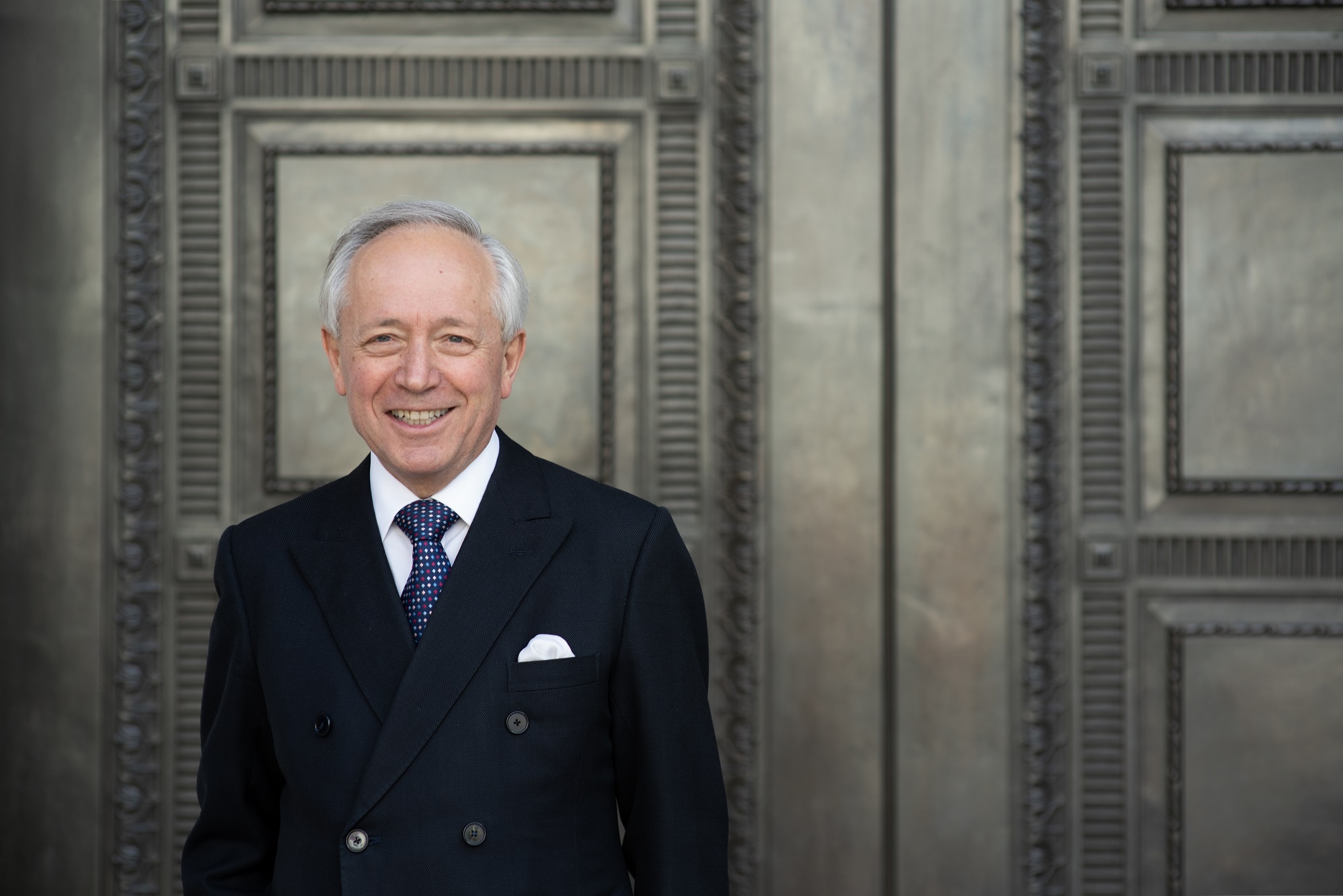
After more than eight years at Metropolitan, Sir Michael was invited to become Deputy Grand Master. Maybe one of the reasons behind his appointment was the fact that Metropolitan Grand Lodge’s leadership team had pioneered measures that are now employed to address the membership challenge of declining numbers. He has also driven change and improvement in a number of organisations.
‘We have to get the statistics right, we had to understand how we attract new Freemasons and we had to look at how we mentor people,’ he says. ‘That’s not just the official mentors; it’s the job of every Freemason to engage with every member, particularly if they are new. We need to nurture people and bring them in.’
When Sir Michael became a Partner at Kingston Smith, it had five partners and 35 staff. During his tenure as Managing and Senior Partner, that grew to 64 partners and 500 staff by the time he left. His roles at the City of London included chairing several Committees, including as Chairman of the Policy and Resources Committee – effectively the Leader of the City of London Corporation. He currently chairs the Capital Buildings Board, which is responsible for major developments such as the new Courts Building and the new City of London Police Headquarters.
So what’s the secret of managing change in large organisations? ‘It’s about having a vision for the future and about listening and actually hearing,’ he says. ‘When you make change, you have to change things for the better and you need a consensus with everybody pulling in the same direction.’
Given his professional success, it’s interesting to hear Sir Michael talk about the benefits of Freemasonry, which he sees as teaching valuable life skills through a process of constant self-improvement. ‘I have seen a lot of Freemasons learn how to speak publicly, how to memorise things, how to run meetings,’ he says. ‘These are useful skills and these aren’t things you’d necessarily learn at school or even work. In Freemasonry, you are asked to assume leadership roles or positions of responsibility in which you have to perform, and that’s very good for your confidence.’
Sir Michael is happy to support Jonathan Spence in the leadership of UGLE as he believes they share a desire to ensure Freemasonry remains relevant. ‘We agree on the Strategy and principles such as the membership challenge, on streamlining meetings, on engaging with younger members, on not being scared to say we are Freemasons,’ he says. ‘We love the charitable work and share a lot of values. Neither of us enjoy prevarication or being told anything other than the unvarnished story straight away. If people don’t tell us a problem, we can’t help – and we want to help in every way we can.’
